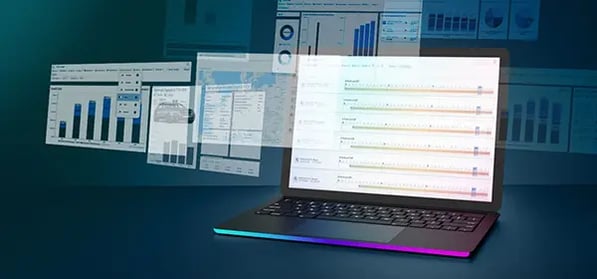3 min read
Readiness for Digitalization in Automotive Supplier Sales: A Battle Between Progress and the Status Quo?
 Erik Reiter
:
Updated on October 18, 2024
Erik Reiter
:
Updated on October 18, 2024
Digital transformation is not a new trend, but has long been a necessity in order to remain competitive. Digitalization offers enormous advantages, particularly in automotive supplier sales, such as the automation of processes, error avoidance in price management and an improved focus on profit performance. This inevitably leads to an increase in efficiency, growth and profit. The question that arises is: why do some companies still find it difficult to start this transformation?
Facts about digitalization: a clear case
The facts and figures speak for themselves. Digitalization ensures immense increases in efficiency through automation in all sales processes. This is documented in various articles, including "Automation in Automotive Supplier Sales", which describes in detail how automation is revolutionizing not only day-to-day sales, but also reporting, pricing and change management. Data that is entered into a system once can be reused instead of having to manually copy and adapt it again and again. A deeply integrated system that eliminates manual processes not only saves time, but also avoids costly errors.
In addition, the article "Boosting Profits by Digitizing Sales" shows how automation contributes to significant profit increases by focusing on profitable growth in acquisition and profit-oriented performance optimization in change- and claim-management.
However, the question remains: why are so many companies struggling to implement this transformation?
Resistance to change: a struggle for power and control?
Change is often associated with resistance - especially in industries that operate traditionally and rely on processes and tools that have been tried and tested for decades. A classic example of this is Excel. Excel is seen as the foundation of price management and sales processes in many companies. It is flexible, customizable and many employees have developed their own complex formulas and tools in it. These tools not only offer operational advantages, but also give the creators a certain amount of control and power over the processes. Replacing Excel means not only a technical change, but also a cultural change that often causes resistance.
This resistance is understandable. Employees who have used Excel for years feel secure in their work and fear that they could lose their control with the switch to automated, digital solutions. The new systems seem like a "black box" that they cannot fully penetrate. Their expertise and influence, which is based on their knowledge of the Excel tools they have created themselves, could lose value.
A tension arises between those who recognize the necessity of digitalization and see the gains in efficiency and transparency, and those who want to preserve the status quo. This debate is not just about tools, but also about power, influence and the fear of change.
What makes the difference in the digital transformation?
Change processes are never easy, especially when they deeply interfere with existing structures. But there are factors that determine whether a company successfully digitalizes or remains in resistance:
1. Cultural change: a digital transformation is not just a technological change, but also a cultural one. Companies must be prepared to question old structures and ways of thinking and open themselves up to new possibilities. This requires a rethink at all levels, especially in management, which must actively drive digitalization forward.
2. Training and support: Employees who have worked with traditional tools such as Excel for years need training and support to understand the new systems and recognize their benefits. The change must be accompanied so that the workforce develops confidence in the new processes.
3. Transparency and communication: The introduction of new technologies must be communicated transparently. Employees should understand why the changeover is necessary, what advantages it offers and how it makes work easier. Open communication helps to reduce fears and make the transition smoother.
4. Employee involvement: Change should not be dictated from above. Employees need to be involved in the process and their concerns taken seriously. They should feel that their expertise is still valued, even if new systems are introduced.
5. Focus on the facts: As is clear in the articles mentioned at the beginning, the facts about digitalization offer convincing arguments. Companies that fail to implement the digital transformation risk being left behind in the long term. The focus should always be on the measurable benefits that automation and digitalization bring - from increasing efficiency to maximizing profits.
The path to the future: digital transformation as a competitive advantage
The automotive supplier industry is at a crossroads. The pressure to digitize is increasing, and those who refuse to embrace change risk being left behind. However, companies that see digitalization as an opportunity can increase their efficiency, reduce the error rate in price management and secure their long-term profitability.
The question of whether to digitize or not should no longer be an issue. Instead, the focus should be on how best to implement digitalization and ensure that all employees are taken along for the ride. It's about overcoming resistance to change by involving employees in the process, showing them the benefits and walking the path to the future together.
To summarize: change is inevitable, especially in times of digital transformation. The challenge is to see change not as a threat, but as an opportunity. Those who dare to take this step will be more successful and competitive in the long term.
This article makes it clear that digitalization in automotive supplier sales not only raises technical issues, but also entails far-reaching cultural and organizational challenges. But the facts speak for themselves: the future is digital.
Are you curious to find out how automation works in the leading solution for sales planning and sales management? Make an appointment for a live demo with Digital Automotive today!




